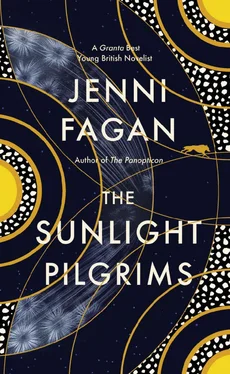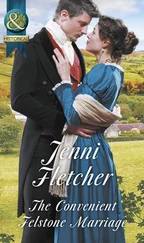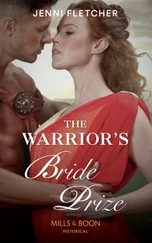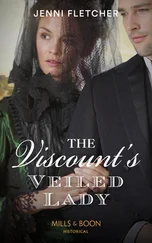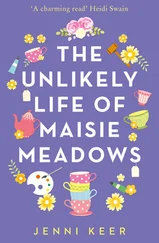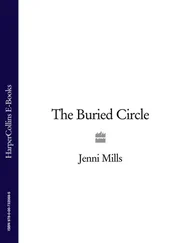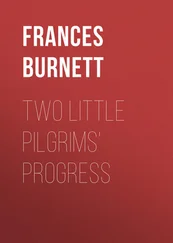Dylan walks up through a car park, passes a caravan with gnomes fishing outside.
What was Vivienne doing here?
He tries to imagine his mother walking up this slope, chain-smoking, wearing a headscarf and winkle-pickers and huge sunglasses. She took three trips away last year, saying she was going to meet a film collector who had lots of rare reels, but on at least one of those trips she came here to buy a place for him. The doctor must have told her, long before she told him. She knew they were going to lose Babylon a year ago. After Gunn died, she must have been sure she wouldn’t last much longer, either. All those trips she made to the hospital without telling him, it makes him angry. She never gave him the chance to look after her. She took away the last thing he could have done. She didn’t want him to see her sick and deteriorating, so she’d come home in between trips to the hospital and sip gin and watch The Wizard of Oz in Cinema 1, wearing old paisley-pattern pyjamas. The woman was hard-as-fucking-nails. A glint materialises under a car and he crouches down to find a large frog. He scoops it up. The glassy white throat thrums and a clear membrane slides down each luminous eye. A fine black slit stares back at him, and wide pads move up and down on his palm. It pulses in his cupped hands like a heart. He places the frog carefully on the verge beneath the car and keeps walking, faster now because his ears are numb and he feels even taller next to these caravans, like he is a giant who has come here this late at night so he can peer through windows and rearrange the sleepers’ dreams — blow new ones into their ears through a glass pipe.
A sign for Ash Lane is almost totally covered by briars. He pushes them back. There are five caravans on either side of a small lane. Each caravan is silver, bullet-shaped with a big bay window at the front. The first one has a sign outside that swings in the breeze: Rose Cottage. It has a crooked chimney. The air smells clean and pure with a hint of wood-smoke. His caravan is no. 7 and the gate to it is rusted shut. It is more dilapidated than the others. A BMX bike with a pirate flag flapping on the back of it leans on the neighbour’s porch. A girl with black hair appears at the window and he is about to raise a hand but she is already gone. Dylan steps over the gate to no. 7. Thistles snark his coat as he makes his way along the tiny path and up a slumped set of porch steps. He lifts the mat and, in between moist soil and wriggling slaters, there is a key. He picks it up and puts it in the lock and twists. His fingers are numb; he blows on them and tries again. He can’t remember what the deed said — maybe it was Needs cosmetic attention.
The door swings open.
He flicks the light on and steps into a hallway one footstep wide and long. Dylan pushes the door directly in front of him and it opens on a clean-looking white shower, loo, sink. He opens the bathroom cabinet. There is only paracetamol. He has a horrible feeling that his mother could be sitting in the bedroom right now, drinking gin. He did see her body but it seemed she was only sleeping, and he had so many pints before he got there that the whole thing has become hazy like a film he saw when he was tripping one time. A bad one. The kind that follows you around indefinitely.
Dylan stoops to get through the bedroom door. He can stand upright but his arm doesn’t even extend halfway before he touches the ceiling. There is a double bed with brass knobs on the top and bottom headboards. Vivienne’s sketchbook is on the bedside table. It used to sit next to Vivienne’s bed or she’d sit sketching in it outside. Sometimes he’d wake up to find her drawing him. She must have brought it up here when she bought the place and left it for him to find. He picks it up, turns it over, slips it into a drawer. He opens the curtains and the bedroom has a view of mountains and endless skies.
He places his hand on the window.
It is only one step back through to the living room, a long thin room with an old square television with a big dial on the front. It makes a satisfying click when he switches it on. He places the suitcase down and scrolls through the fuzz on the telly until a channel mangles into life. The screen slinks away to the left, then there’s a dot. Dylan sits on a blue flowery armchair and rests his hand on the arms. He switches on a Hawaiian-lady lamp, which is sitting on the wee Formica table next to him, and in the kitchenette in the corner there is a two-hob worktop Baby Belling. Fake-wood panelling adorns every available space, including the ceiling, and there is a gigantic painting of a plough horse in a gold frame on the wall. It paws the ground, come-hither long lashes frame brown eyes looking coyly at him.
How did it come to this?
A week ago he thought the family business would keep him and now he’s shuffling through a sheaf of local tourist attractions: a castle, a stately home, a pottery up on Clachan Fells. Fort Harbour café does home-made banana cake and deer-burgers. He’ll check that one out. A local taxidermist is giving lessons. There is an advert for stag hunting and one for hot yoga, and the timetables for a ferry that leaves from the harbour over the mountain; it will take him closer to the islands up north, where his grandmother came from. After all these years he is tracing her steps back that way. Dylan rolls a cigarette. He opens the fridge and finds four cans of cider. The thing has been switched off and it smells, but it is so cold in here they are still chilled. His mother never drank cider.
— Love is what makes it worth the utter strange!
Vivienne — the one time she took Ecstasy and got hysterical, he had to put her in a cool bath and read her nursery rhymes until she felt better. She was sixty-seven. The pills were a present from the guy she was seeing. What was she thinking? Dylan taps his fingers. He should be putting up the usual online advert, perhaps a triple-bill by Werner Herzog ( Fitzcarraldo, The Burden of Dreams + Bad Lieutenant: Port of Call New Orleans ) or tomorrow it could be Nosferatu (1922) + evening screening: Freaks (1932) . On Tuesday he would have gone for The Goonies + Gremlins 1&2 . The television screen stops sliding to the left and the picture settles. Footage flashes. Environmental protestors outside Westminster. Rows of police officers stare through them. Save the Planet signs bob up and down, and one fat guy with a ginger afro and See, We Fucking Told Youz Cunts! scrawled across his T-shirt. Dylan rolls a cigarette.
As the camera pans along the front row, people begin to hold hands.
He takes a deep drag and exhales.
There are rows and rows of them.
Just standing by the river holding hands.
A little boy walks out to the row of police officers and places down a teddy. He holds out his hand to the policeman. The policeman is young and he looks straight ahead. The boy stands there with his hand held out. All the rows of people behind him are holding hands now and his mother puts her arms around him, leads him back. Something about it. The protestors stare back at the camera. A banner spells out Corporatocracy is a crime . An interactive map flashes up on the news show to pick out the potential areas that are going to be most affected by the cooling Gulf Stream. Europe, Canada, USA, Southern America, Africa. They all light up one-by-one. High alert. High alert. High alert. This message trails across the bottom of the screen in a band and he clicks it over, so the telly tries to find some more channels and Dylan closes his eyes. He falls asleep while light flickers on the walls.
It sounds like a bomber — it sputters out, then roars in again. Dylan lurches upright and grabs his phone, the LED reads 5 a.m. He stands up and pulls the net curtain back and his next-door neighbour’s door is open. Trees sway wildly where a few hours ago they were still. The sound drones from somewhere further up the lane. He drags his coat on and walks out the front door. He steps easily over the rusted gate. At the end of the path a woman hoovers up the road.
Читать дальше
